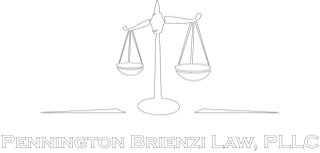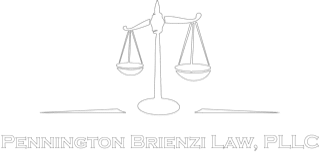Estate Planning and Will Preparation
Tailor your plan to meet your unique needs, family dynamics, and financial situation
Planning for Your Future
Secure your future and protect your assets with our comprehensive estate planning services. Our experienced team will help you through the various aspects of estate planning, ensuring that your wishes are carried out and your loved ones are taken care of.
- Preparing Wills
- Durable Power of Attorney
- Healthcare Power of Attorney
- Estate Planning Document

Client Testimonials
Christina Clark
Randy Patterson

Our Goal
Safeguarding Your Assets
At our law firm, we understand that estate planning is a personal matter. With our attention to detail and comprehensive approach, you can have peace of mind knowing that your assets and loved ones will be protected.
FAQs
Find answers to frequently asked questions about estate planning matters.
What documents are essential for an estate plan?
Creating a comprehensive estate plan involves organizing and preparing various documents to ensure that your wishes are carried out in the event of incapacity or death. The specific documents needed can vary based on individual circumstances, but here are some essential components of a typical estate plan:
- **Last Will and Testament:**
A will is a legal document that outlines how you want your assets to be distributed after your death. It may also specify guardianship for minor children and appoint an executor to carry out your wishes.
- **Durable Power of Attorney:**
This document designates someone to make financial decisions on your behalf if you become incapacitated. It grants authority to manage your financial affairs, pay bills, and make financial decisions.
- **Health Care Proxy (Health Care Power of Attorney):**
Designates an individual to make medical decisions on your behalf if you are unable to do so. It also allows you to specify your preferences regarding medical treatment.
- **Living Will (Advance Directive):**
A living will outlines your preferences for end-of-life medical treatment. It provides guidance to healthcare professionals and your designated healthcare proxy regarding life-sustaining measures.
When should I start estate planning?
Estate planning is a process that involves making decisions about how you want your assets to be managed and distributed in the event of your death or incapacity. While the specific timing can vary based on individual circumstances, here are some general guidelines to consider:
**Start Early:**
It’s advisable to start estate planning as early as possible, ideally when you are an adult and have assets, even if they are relatively modest. The earlier you begin, the more time you have to make thoughtful decisions and adjustments as your life circumstances change.
**Life Events:**
Certain life events often trigger the need for estate planning. These events may include getting married, having children, purchasing a home, starting a business, or accumulating significant assets. As your life evolves, so should your estate plan.
**Health Considerations:**
Health issues can arise unexpectedly, and planning for incapacity is a crucial aspect of estate planning. Establishing documents such as a durable power of attorney and a health care proxy can ensure that someone you trust can make decisions on your behalf if you become unable to do so.
**Age and Health Status:**
While age itself is not the sole determining factor, it’s generally a good idea to start the estate planning process sooner rather than later. Unexpected events can happen at any age, and having a plan in place provides peace of mind.
**Changes in Relationships:**
Changes in relationships, such as marriage, divorce, or the death of a spouse, may necessitate updates to your estate plan. Review and revise your plan as your relationships and family structure evolve.
**Consideration of Assets:**
As you acquire assets and wealth, it becomes increasingly important to plan for their distribution. Estate planning can help minimize taxes, ensure your wishes are carried out, and provide for the financial well-being of your loved ones.
**Business Ownership:**
If you own a business, planning for its succession or transfer of ownership is essential. Business owners should consider how the business fits into their overall estate plan.
**Regular Reviews:**
Even if you’ve already created an estate plan, it’s crucial to review and update it periodically. Changes in laws, family dynamics, and financial circumstances may require adjustments to your plan.
In summary, the best time to start estate planning is now. Regardless of your age or financial situation, having a well-thought-out estate plan in place can provide you and your loved ones with peace of mind and clarity about your wishes.
How can an attorney help with estate planning?
An attorney plays a crucial role in helping individuals and families with estate planning by providing legal expertise, guidance, and assistance in creating a comprehensive plan.
Engaging an attorney in the estate planning process can help ensure that your wishes are accurately reflected in your legal documents and that your plan is well-crafted, legally sound, and designed to achieve your specific objectives.
What is estate planning?
Estate planning is the process of arranging for the management and distribution of a person’s assets and affairs during their lifetime and after their death. The primary goals of estate planning are to ensure that an individual’s wishes are carried out, to provide for the financial well-being of loved ones, and to minimize potential complications and disputes. Estate planning is a dynamic and ongoing process that should adapt to changes in an individual’s life and financial situation.
What happens if I don't have an estate plan?
If you do not have an estate plan in place, the distribution of your assets and the management of your affairs will be subject to the default rules and regulations established by your state’s laws. Here are some potential consequences of not having an estate plan:
**Intestacy Laws:**
If you pass away without a will (intestate), your estate will be distributed according to the intestacy laws of your state. These laws typically dictate the distribution of assets among surviving family members, such as spouses, children, parents, or siblings, based on a predetermined hierarchy.
**Probate Process:**
Without a will or other estate planning tools, your estate may go through the probate process. Probate is a legal procedure through which the court validates your will (if you have one) and oversees the distribution of your assets. This process can be time-consuming, costly, and subject to public record.
**No Control Over Distribution:**
Intestacy laws may not align with your wishes, and the distribution of your assets may not reflect your preferences. For example, certain family members may receive a share of your estate that you did not intend.
**Guardianship Decisions:**
If you have minor children and there is no designated guardian in your estate plan, the court will determine who will be responsible for their care. This decision may not align with your preferences or values.
**No Health Care Directives:**
Without a health care proxy or living will, decisions regarding your medical treatment and end-of-life care may be left to family members or healthcare professionals without clear guidance from you.
**Business Uncertainty:**
If you own a business, the lack of a succession plan could lead to uncertainty and potential conflicts among heirs or business partners.
**Increased Costs:**
The absence of an estate plan may result in higher legal and administrative costs. Probate proceedings, potential disputes among heirs, and other complications can increase the overall expenses associated with settling your estate.
**Potential Family Conflicts:**
The lack of clarity in your intentions can lead to disagreements among family members, potentially resulting in legal disputes.
To avoid these potential issues, it’s advisable to create a comprehensive estate plan that reflects your wishes, provides for the well-being of your loved ones, and ensures the efficient distribution of your assets.
Still Have Questions?
Contact us for more information.
Schedule a Consultation
Contact us via text or through our contact form.
Determine the next right steps for your unique situation.
Experience clarity on your legal rights and options.

